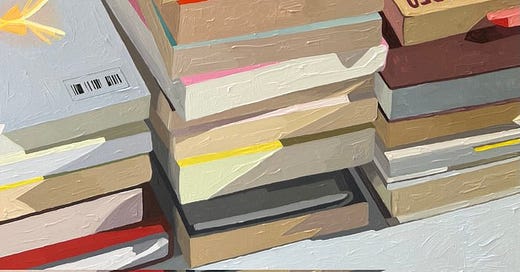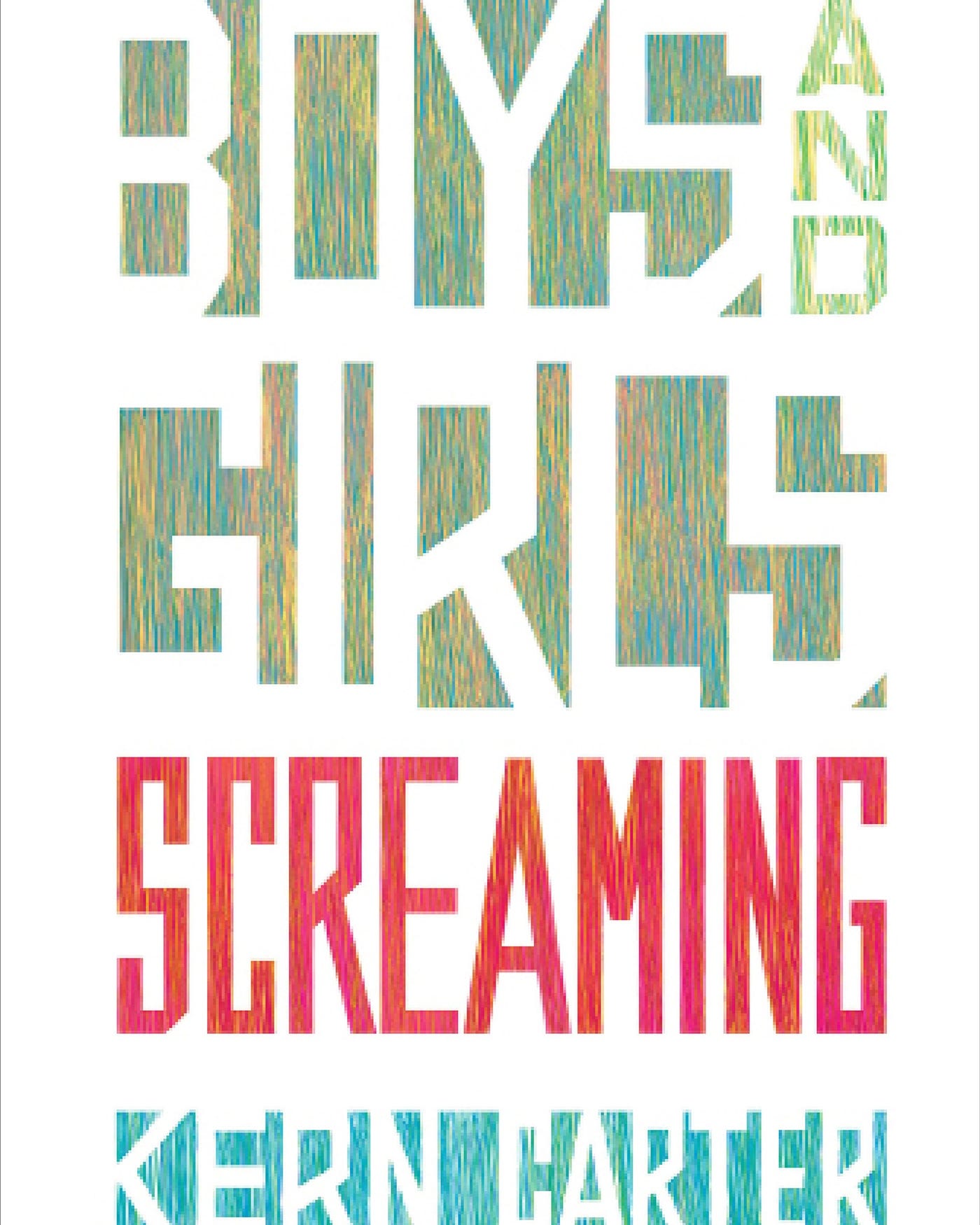This is a super sensitive topic, but I feel like I am the perfect person to speak about it. I’m Canadian, I’ve received multiple grants, I’ve been on committees that have given out grants, and I study the publishing industry.
This is a topic I really care about, and I think that what Canada is doing by heavily supporting artists is a beautiful thing, one I am so grateful for and want to continue. But I also read the criticisms, the negative perceptions of what these grants should represent, how it’s distributed, and who it’s distributed to. I have a lot to say.
First, an explanation.
Canada has three main branches of granting bodies: The Canada Arts Council, which is the federal body, then provincial councils (I live in Ontario so the Ontario Arts Council for me), and then local organizations that serve the city you reside in.
Without getting into a super deep dive, what’s important for you to know is that these are not just nice-to-have grants. Our film and publishing industry rely on these grants for their existence. For publishing, nearly every Canadian indie publisher looks to grants as part of their revenue model. Take these away and you take away most of the industry. This is one half of what I am talking about when referring to Canadian art grants.
The other half is that grants get distributed directly to the artists (authors included). We set up individual accounts on these organizations’ platforms and request funds in similar fashion as the independent publishing houses. As individuals, we can apply federally, provincially, and locally for substantial funds all the way down to micro loans (grants).
I’m going to speak on the individual grants first.
The first grant I kind of received wasn’t for publishing, it was a six figure grant from the Canada Council to produce a film. The reason I say “kind of” is because my creative/business partner was the one who created the idea we received the funds for and eventually produced (she received the funds directly). My role was as a script editor and eventually a producer, both roles I had never done before.
When we received this grant, I was earning six figures as a freelance writer and my partner was earning close to the same, yet nowhere on the grant application did it ask for our income. I see this as a problem, and if not a problem then at least a missed opportunity.
I believe strongly that a major part of deciding who gets funded should be the income of the individual. These granting bodies consider so many factors, including the location of the artist. By location I mean that with federal and provincial grants, if someone lives in a major city like Toronto and all else is equal with the project they are deciding on, then they will choose the person who lives outside of the big city. The thought process being that big cities like Toronto have far more applicants and individuals receive far more grants as a percentage of applicants. I think that’s fair.
These granting bodies also consider identity. If you are from a racialized background or a special group (queer, disabled, etc.) and all else is equal, then the funds will be distributed to the person who falls into one of these identities. Again, I know this for a fact because I have been on selection committees for some of these grants and again, I think this is fair.
But grants are a financial prize. Why wouldn’t they consider the financial circumstances of the applicants? And not just consider, but prioritize. There should be a percentage of the funds dedicated to applicants who fall under a certain economic category because they need it more than anyone, certainly more than two people who collectively make hundreds of thousands of dollars.
And obviously I’m grateful. I wouldn’t have a film on Prime Video today without that grant. And I am not saying that we should exclude applicants of a higher tax bracket. But it doesn’t make sense to me that a financial prize doesn’t take into account financial circumstances.
This brings me to my next point. Not enough young people are familiar with the granting system. I wasn’t even familiar until I started applying for grants in my thirties. These granting organizations need to be actively visiting schools across the country on a yearly basis. They need to create informative material and content that exposes young people to what they can access with just an idea. Young people have voices, too, and are just as creative as any adult. I also know this for a fact because I am in schools on a regular basis.
That’s my take on individual grants, the grants to organizations get far more complicated. Here’s why:
Grants are free money but not free from strings. As indie publishers know, these governing organizations have preferences and these preferences change like agendas tend to do. Put more plainly, if you are not publishing the types of books that are in line with what the granting bodies want to see, then they won’t fund you. That statement probably sounds worse than it really is. All I’m saying is that every funder, be it an investor, charity, or whatever, have preferences. They give to whoever or whatever are in line with those preferences. The Canadian art organizations are no different.
Where this becomes tricky is that most indie presses are not profitable without grants, and some not even with them. Some stats say that the lifetime sales of a book from a Canadian indie publisher is 400 copies. You can’t sustain yourself as a business with those kinds of numbers. Yet the Councils will continue to fund indie presses, regardless of profitability, because they believe books are that important to Canadian society.
I find this admirable.
We are a country of just over 40 million. To put that in perspective, that’s about the population of the state of California. And when you break that down to who is reading books, even though Canada scores high on percentage of population that reads, that’s still a relatively small number of eyeballs. So the reason I say that what Canada does is admirable is because we are defining who we want to be as a country and what is important to us.
But even in my admiration, I have doubts and critiques.
Is there a better way to do this? Can we incentivize presses to open up the types of books they produce so they can start turning towards sustainability and perhaps even profitability? Maybe. Or maybe that’s not the focus. Spotify just celebrated its first full year of profitability in 2024. They’ve been around since 2008. Uber (just became profitable in 2023), Air BnB (first profitable year in 2022) and many other tech companies took years and years for one profitable period, yet investors continue to dump money into those businesses. They see value in them. Canada sees value in their artists and art institutions.
That said, I remember researching indie publishers in the U.S. for a college course I teach part time. This one publisher exclusively publishes woodworking books and only publishes, I believe, seven a year. With this niche model, they have never lost money on a book and when I taught the class in 2024, they were making about $2 million in profit a year.
I also think about a hybrid publisher in B.C., Canada named Page Two. They focus on publishing people who are experts in their field. They use MacMillan as a distribution partner and put out a low number of books every year so they can focus on quality. They’re making real dollars.
Then there’s Coach House Press, a legacy indie publisher based in Toronto who print their own books (that’s how the business started back in 1965). They accept grants but also have a currently healthy business, partly because they still print books for other publishers (and I think the University of Toronto, but haven’t confirmed if this is still true).
So it’s not like publishing is incapable of making money, or the arts in general. According to the Ontario Arts Council, “In 2022 alone, this sector contributed over $26 billion to Ontario’s GDP and supported 270,000 jobs.” That shows the investment is paying off.
I just wonder if a Canadian indie publisher came out and only published steamy romance, would they get funding? Would they need funding?
I don’t have many answers here, all I do know is that I don’t ever want the grants to go away. What I do want is for these granting bodies to consider how these grants are distributed and for indie presses to think about their business models. I think that’s fair.







I’m currently waiting on a decision about my individual Canada Council application to direct my first short! I received one also as a group in 2023 to produce a short, which is just finishing up its festival run. These grants make so much possible in this country! But agree there is still work to be done to perfect how and to whom the funds are allocated. Thanks so much for this timely article :)
I always find the terms and conditions of applying for grants confusing- I only wish I had more people to guide me through the process.